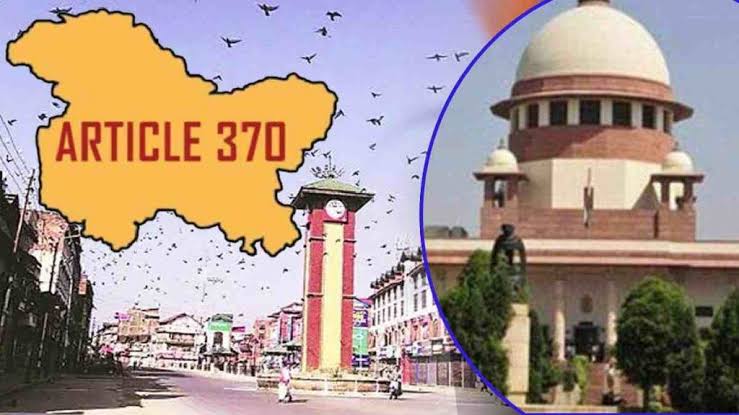
The supreme court of India on Thursday will commence hearing petitions challenging the abrogation of Article 370 for the fifth day.
Senior Advocates Kapil Sibal and Gopal Subramaniam have finished their arguments and the court is hearing the petitions of Bar Council lead by senior Kashmiri Lawyer, Zafar Ahmed Shah.
On day four Advocate Gopal Subramaniam argued that there was no possible way for the Indian Government to abrogate the special status of Jammu Kashmir granted to it by the Articles 370 and 35A.
Senior Advocate Zafar Shah on Wednesday insisted that there was a principle difference in the agreement between India and Jammu Kashmir. Unlike other states, Jammu Kashmir entered the arrangement of accession and did not enter into two succeeding pacts–Standstill Agreement and Merger agreement.
After having told the court to not fiddle with the Articles 370 and 35A, as it was a matter of national interest, the Bhartiya Janta Party on Wednesday told the parliament that the Article will not be returned to the people of Jammu Kashmir.
Former Chief Minister Omar Abdullah responding to the statement made by Union Minister and BJP leader Smriti Irani said that her comments were tantamount to contempt of court.
“Are BJP’s arguments so weak that they’re threatening the court of law now?” Omar Abdullah asked.
In Kashmir and Jammu, meanwhile, people have been closely monitoring the developments in the court. The Kashmiriyat has been providing you upto date and constant coverage from the court of Law and also updating you on the important developments around the Articles 35 A and 370.
16 more petitions are lined up by the Apex court of Law and on Thursday, Advocate Zafar Shah will continue his arguments.
Here are the Live Updates:
1045 A.M: The bench gathers for the fifth day of hearing on Article 370. Zafar Shah commences his arguments.
1050 A.M: Zafar Shah: As I said yesterday, Jammu Kashmir did shake hands, but did not embrace India, the decision through Article 370 was left to the people of Jammu Kashmir. That’s why the treaty of merger was not signed by Jammu Kashmir with India.
1055 A.M:
Zaffar Shah continues, The genesis of framing of the constitution of J-K is rooted in the nature of the Instrumemt of Accession as well as the proclamation of 1948. That’s why there was a seperate constitution for the state.
1100 A.M: There were limitations within 370 that were put to restrict the power of the Parliament to makes laws regarding Jammu Kashmir– first limitation was of you are relating to any subject in list 1 and list 3, which is not covered in the instrument of accession.
11:10 A.M: Shah: Why this special treatment for J&K? Simply because there was no merger agreement unlike other states of India. Therefore, this autonomy had to be maintained.
11:15 A.M Shah: There is a limitation put both on the central Government and the president to make laws regarding Jammu Kashmir which is within Article 370. Unlike other states, nobody can make laws regarding Jammu Kashmir without the consent and concurrence of the state of Jammu Kashmir, which is it’s people.
12:02 PM: Shah: What has been done now? Jammu Kashmir, its people have been divided. Part of it is with Pakistan, part of it with China- about 2000 kms in Aksai Chan, remaining part is here. We’re being sandwiched by all forces.
1235 P.M: Shah continues, We need to be united with the three regions. We need to live how we were living before August 05, 2019. The government did give their concurrence from time to time to change laws. But there are some laws they’ve not agreed to, what was done on 5 August was by force.
12:45 P.M: Our laws may be the same as that of the constitution of India, but I am arguing that we (Jammu Kashmir) made laws on our own. We had the power to make our own laws but now my state legislature has lost the power to make laws and the little power, whatever I had, Shah argues.
He continues, “I as a resident of Jammu Kashmir was a permanent resident of the state. Now all that is gone,” says Zafar Shah.
1:00 P M: The bench will gather post lunch for the hearing.
